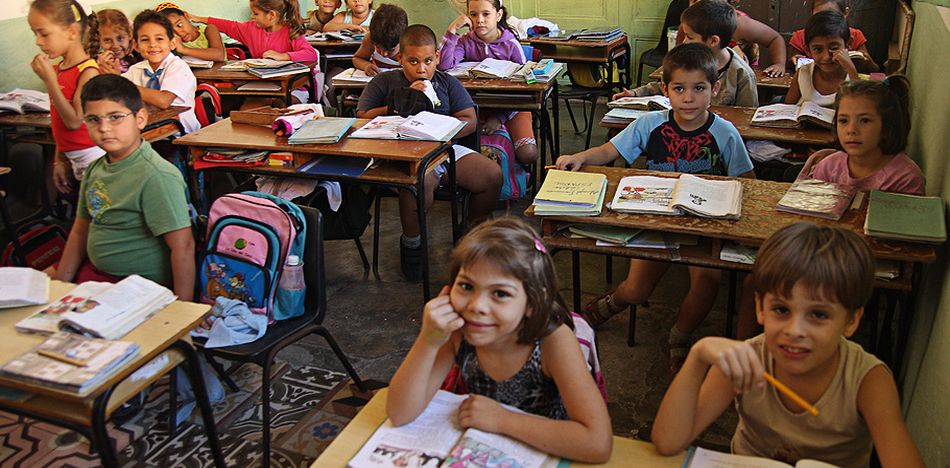
By Rosa Magdalena Aviles Carballo/ HABLEMOS PRESS.
EspañolMAYABEQUE, CUBA — Teachers and other education professionals started leaving their jobs at the beginning of the 2016-2017 school year in Cuba’s Mayabeque province. Over the next few months, many followed suit.
This year’s figure constitutes the biggest exodus of teachers since 1998, according to a source from the Provincial Education Directorate.
“The accumulation of teachers who left classrooms this 2016-2017 period exceeds 250 … and in this province alone!” said a source speaking on the condition of anonymity.
Educators left their schools in three stages: at the end of the last school year, during the first week of September and then throughout the following months — all arguing they receive extremely low salaries.
A primary and secondary teacher earns between 450 and 500 Cuban pesos, or about US $20 a month.
In the last 10 years, wage increases for teachers amounted to around US $3. Meanwhile, workloads and responsibilities were multiplied due to a lack of educators.
At the beginning of 2016-2017 school year, the Ministry of Education of the province was silent about the exodus of teachers.
Some also reportedly left due to a lack of “appropriate conditions to exercise their profession,” poor quality of food in schools and difficulties in getting to and from work.
As the problem has grown, increasingly fewer people are entering the teaching field. Though there is a teacher training school in the Mayabeque province, “Pedro Albizu Campos,” which this year welcomed 600 students, many have abandoned the career path altogether.
“The teachers we currently have in schools throughout the province are mainly older than 50,” the source said.
Yailen Sanchez, a student, said to be a teacher is to die of hunger, and that she would never pursue the profession. Instead, she chose gastronomy.
“Maybe I can work in tourism,” she said, “which is where teachers are going, because they pay better.”
Teachers receive more dividends for private, off-the-books services often taught out of their homes. Others resort to fraud, or are allowed to receive gifts from students to improve their grades after difficult exams.
“It is likely that many other teachers will continue to abandon their jobs and look for better salaries in the private sector,” said María de los Ángeles Rodríguez, a Cuban history teacher who left last year.
“In general, the whole country is affected by this situation, off-the-book classrooms are popping up where professionals have the opportunity to teach higher quality classes because when students pay for their lessons, they are obliged to pay more attention and respect,” said Nora, an English teacher, who runs a home with 10 students, three hours a day from Monday to Friday, for two dollars a week.
“I’m afraid to tell you this,” Nora said. “In Cuba, private schools are not allowed, though it is clear that a student learns better according to the care that the professional can offer, and the results justify the professional’s payment.”
This note was originally published in Hablemos Press, an independent Cuban media outlet. The PanAm Post has established a strategic alliance with Hablemos Press to present Cuba’s reality to our readers, which is ignored by the traditional media.
 Versión Español
Versión Español












